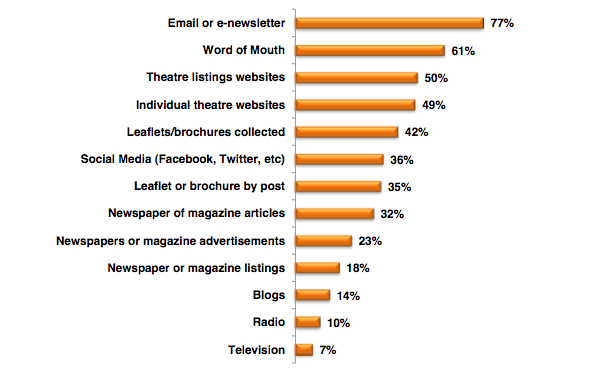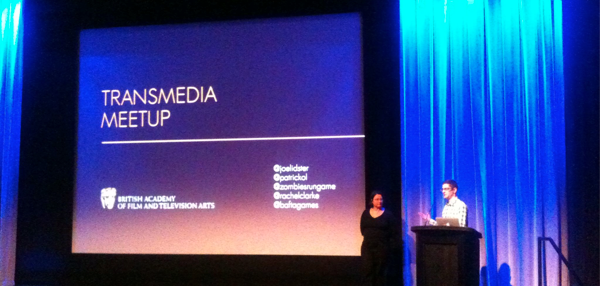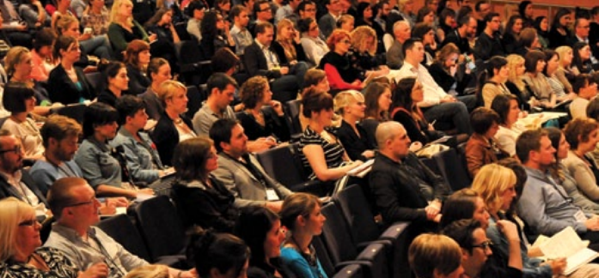There’s a general lack of decent information about the use of digital and social media in the arts and culture sector. It’s a frequent source of frustration when doing research and more strategic work. However, a couple of things have come along recently.
Social Media in Theatre Marketing
The first is by Sven Ruggenberg and is called Social Media in Theatre Marketing. It’s a thesis he wrote while doing an internship at Kevin Wallace Ltd.
Disappointingly there’s no download option, which has hampered my ability to read the thing. Still, I can at least embed it. Hoorah:
I’m actually going to leave off blogging any notes about this for now. Sven will be talking about social media and theatre at a joint-SOLT/Twespians event on Friday. I’m going along and chances are I’ll blog my notes from that (along with my standard grainy/blurred photo).
This report also mentions a dissertation by Andrew Harding called ‘The Impacts and Benefits of Social Media in West End Musical Theatre Marketing’. Intriguing.
The Fringe & Off West End Audience Report 2011
The other is The Fringe & Off West End Audience Report 2011 which has been published by iTrend Research and OffWestEnd.com. I discovered it via a blog post from The Stage’s Mark Shenton.
There’s a whole section given over to websites and social media but, to be honest, there’s not much in there of practical use (at least, not for my purposes). The relative popularity of various websites and blogs was interesting (pp 24-27) but the accuracy of the info has been questioned – Time Out’s theatre blog was surprisingly popular given that it doesn’t yet exist. BOP Consulting have also pointed out that some results may have been skewed by the survey being conducted online.
All that aside, I found the answers to Question 9 interesting:
9. How do you USUALLY find out about productions? Choose all appropriate answers.


